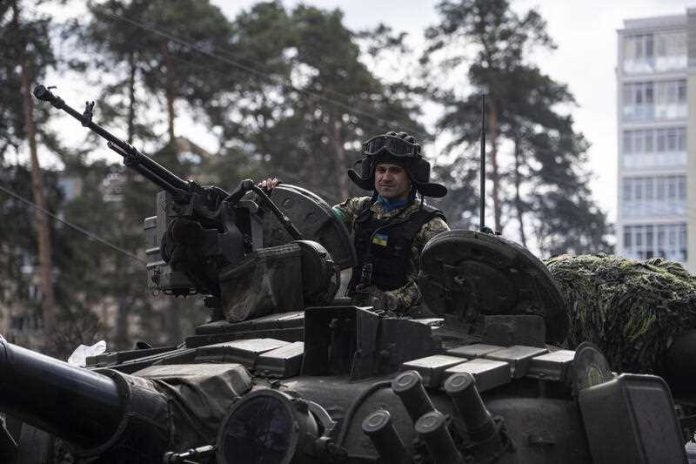The mayor of the Ukrainian port city of Mariupol says that more than 10,000 civilians have died in the Russian siege of his city, and that the death toll could surpass 20,000, with corpses that were “carpeted through the streets.”
Speaking by phone on Monday to The Associated Press, Mayor Vadym Boychenko also said Russian forces brought mobile cremation equipment to the city to dispose of the bodies, and he accused Russian forces of refusing to allow humanitarian convoys into the city in an attempt to conceal the carnage.
Russian forces have taken many bodies to a huge shopping centre where there are storage facilities and refrigerators, Boychenko said.
“Mobile crematoriums have arrived in the form of trucks: You open it, and there is a pipe inside and these bodies are burned,” he said.
The mayor’s comments emerged as Russia claimed that it destroyed several Ukrainian air-defence systems in what appeared to be a renewed push to gain air superiority and take out weapons Kyiv has described as crucial ahead of an expected broad new offensive in the east.
In one strike, Moscow said it hit four S-300 launchers near the central city of Dnipro that had been provided by a European country it did not name.
Slovakia gave Ukraine just such a system last week but denied it had been destroyed.
Russia previously reported two strikes on similar systems in other places.
The failure to win full control of Ukraine’s skies has hampered Moscow’s ability to provide air cover for troops on the ground, limiting their advances and likely exposing them to greater losses.
With their offensive in many parts of the country thwarted, Russian forces have relied increasingly on bombarding cities — a strategy that has left many urban areas flattened and killed thousands of people.
Ukrainian authorities accuse Russian forces of committing atrocities, including a massacre in the town of Bucha, outside Kyiv, air strikes on hospitals and a missile attack that killed at least 57 people last week at a train station.
In Bucha on Monday, the work of exhuming bodies from a mass grave in a churchyard resumed.
Galyna Feoktistova waited for hours in the cold and rain in hopes of identifying her 50-year-old son, who was shot and killed more than a month ago, but eventually she went home for some warmth. “He’s still there,” her surviving son, Andriy, said.
In Mariupol, about 120,000 civilians are in dire need of food, water, warmth and communications, the mayor said.
Only those residents who have passed the Russian “filtration camps” are released from the city, Boychenko said.
He said improvised prisons were organised for those who did not pass the “filtering,” while at least 33,000 were taken to Russia or to separatist territory in Ukraine.
Meanwhile, the UN children’s agency said that nearly two-thirds of all Ukrainian children have fled their homes in the six weeks since Russia’s invasion began, and the United Nations has verified that 142 children have been killed and 229 injured, though the actual numbers are likely much higher.
Elsewhere, Austrian Chancellor Karl Nehammer said he met Monday with Russian President Vladimir Putin in Moscow for talks that were “very direct, open and tough.”
In a statement released by his office, Nehammer said his primary message to Putin was “that this war needs to end, because in war both sides can only lose.” Nehammer said he also raised the issue of war crimes committed by the Russian military and said those responsible “will be held to account.”
AAP
Get all the latest Canberra news, sport, entertainment, lifestyle, competitions and more delivered straight to your inbox with the Canberra Weekly Daily Newsletter. Sign up here.







